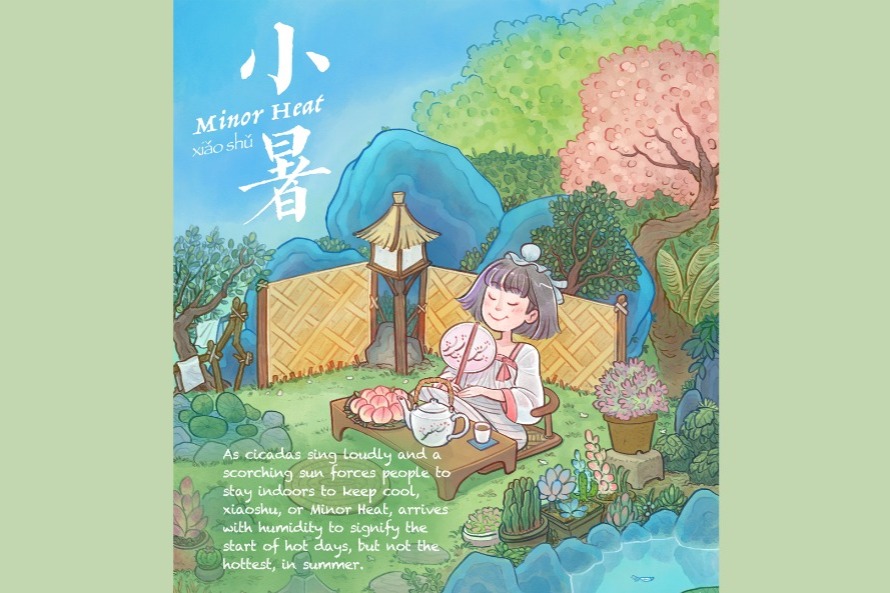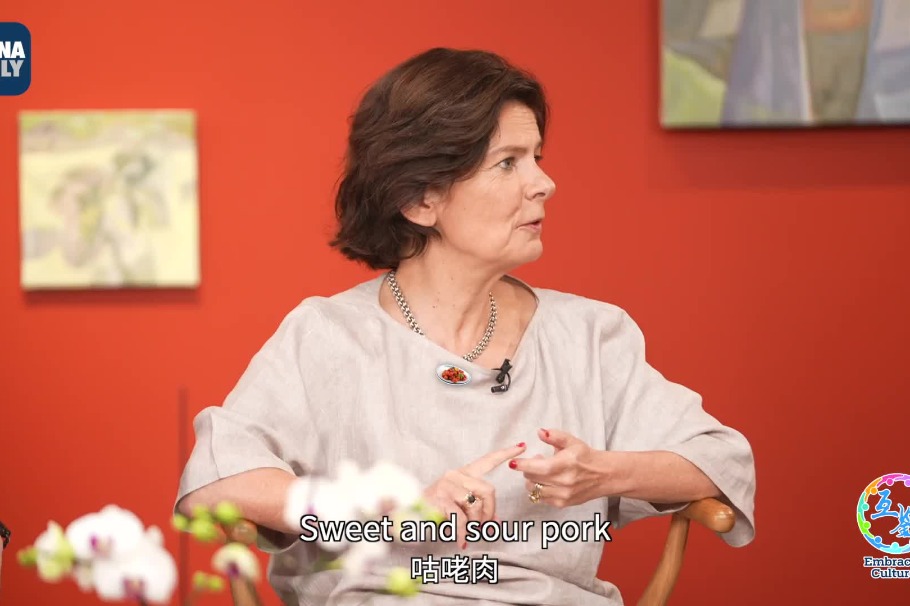威廉王子登上中國綜藝節目 宣傳保護野生動物
中國日報網 英文聯播 騰訊視頻 2015-10-29 14:09

時下,網上流行一句話說三遍,用來表達這件事很重要,不想英國的威廉王子也深諳此道,日前,他受邀參與錄制央視《開講啦》“英國行”特別節目,再次發表演講呼吁人們關注非洲盜獵走私大象,而這已是威廉王子年內第三次公開發表有關象牙走私內容的演講了。
今年早些時候,上海外灘最大的廣告牌上,威廉王子就署名刊登“沒有買賣,就沒有殺害”的廣告。

在此次演講里,他提到,如果大象和犀牛的數量按照這個速度減少,今年出生的孩子,比如我的女兒夏洛特,會在他們迎來25歲生日之前,就見到最后的野生大象和犀牛死去。
“At this rate, children born this year, like my daughter Charlotte, will see the last wild elephants and rhinos die before their 25th birthdays.”
下面就讓我們一起領略王子殿下用他魅力十足的渾厚男中音,為我們講講野生動物保護的重要性。
演講全文:
Ladies and Gentlemen,
Never before have we had so many different ways to talk to one another. In the distant past, written documents would be carried by hand across thousands of miles from China to Western Europe. Today, we access knowledge from all over the world, through our mobile phones and at a tap of the key. Wherever you are watching this program, whether in this hall, at work, with your friends, or at home with your families: 謝謝,很高興和你們見面。 Thank you for welcoming me into your homes.
Many of the most important conversations we have in our lives take place in the family home. The home is where we learn from our parents and grandparents, teach our own children, and share our stories and hopes for the future. It is where many of our ideas and values are first kindled. In that spirit, there is one subject I believe we have to discuss, around our family tables and across the generations. It concerns the future, and I know the Chinese are a far-sighted people. It concerns particularly the environment, and I know that protecting China’s rich and beautiful natural heritage is important to all Chinese families. It is the mass destruction and trafficking of iconic endangered species. And it is time to talk about the growing human demand for illegal wildlife products that drive the trade and makes it profitable.
Today, we face an unprecedented surge in the brutal slaughter of iconic animals by poachers. In South Africa, for example, one rhino was killed every month until 2005. But last year, three rhinos were killed every single day. In the 33 years since I was born, we have lost around 70% of Africa’s elephant population. Of those that are left, 20,000 are being killed every year. That is 54 elephants killed every single day. At this rate, children born this year, like my daughter Charlotte, will see the last wild elephants and rhinos die before their 25th birthdays.
Those who suffer the most from this loss are some of the poorest people on our planet. They are the families who feel powerless as wildlife around them disappear, who face being trapped in poverty forever, without the income that should be brought in by tourism, a cornerstone of the economy in many developing nations. They are the children whose parents risk their lives in the fight against poachers. In the last few days, three rangers and one member of the armed forces were killed by poachers in one incident in Central Africa, leaving behind 14 children between them. It is these children’s future that is blighted so tragically by the illegal wildlife trade, and it is their birthright that is stolen.
There is no hiding from these facts today. On our phones, laptops and our TV screens, we can see the images and read the reports that lay bare the truth of this crisis. That knowledge brings responsibility: the responsibility to do everything in our power to reverse the march towards eradication of these fine animals.
The good news is that we are far from powerless in this struggle. We can turn the tide of extinction. We know where the animals we are trying to protect live. We know many of the roads, the airports and ports criminals use to transfer their cargo, from killing fields to marketplace.
And over the last few years, we have seen a groundswell of action by governments to improve their laws and to work across borders to fight the traffickers. Only last month, President Xi announced that China would take steps to halt the domestic trade in ivory, adding to the ban on ivory carving imports he announced in February.
But we know the illegal wildlife trade cannot be solved by governments alone. The spotlight falls back on all of us, and on the choices we have to make to play our parts in addressing this problem. We have to accept the truth: that consumers are driving the demand for animal body parts — for arts, for trinkets, or for medicine. Only we as consumers can put the wildlife traffickers out of business by ending our demand for their products. I know we can do this.
The desire to possess animal trophies or ornaments made from ivory has been felt on every continent for centuries. I know this topic is sensitive for many families. For example, until a hundred years ago, my ancestors were those who had little concern about acquiring ivory without the knowledge of the threats of extinction, corruption and violence that the ivory trade would lead to. My rejection of ivory today is not a judgment of past generations. It is an acceptance of the world as I find it today, and the world that I want my children, George and Charlotte, to inherit.
Likewise, those doctors and medical practitioners in China who are speaking out against endangered species in medicine. They are not judging previous generations who did not have the facts that you do today. They are just accepting the truth: that all credible evidence and scientific research shows, for example, that rhino horn cannot cure cancer. We have a responsibility to act on the facts that we have today. By doing so, we are honoring the generations that have come before us and we are protecting those that are yet to come.
I do not think that anyone would stand and watch an elephant or rhino being killed. Or a ranger being gunned down because we wanted a bracelet or an ornament to impress someone else as a gift. But that is what the demand for wildlife products means in practice. The decisions we make as consumers affect the lives of ordinary people thousands and thousands of miles away, in countries we may never visit. If we buy illegal wildlife products, we are contributing to the extinction of whole species.
But there is good news, and if you remember one thing, I want you to remember this: We can win the battle. Each generation decides what it values. Each generation can determine what we consider to be beautiful on the one hand, or unacceptable, or immoral on the other. We can act in solidarity with those fighting poaching and trafficking in their communities.
I am absolutely convinced that China can become a global leader in the protection of wildlife. Your influence in the world means you can change the face of conservation in this century. This will be a contribution that would go down in history, one that your great grandchildren would speak of with great pride.
The greatest inheritance we can pass on to the next generation is a safe and sustainable environment, the priceless endowment of nature. Let us not tell our children the sad tale of how we watched as the last elephants, rhinos and tigers died out, but the inspiring story of how we turned the tide and preserved them for all humanity. And in so doing, let us show the world that by working together we can stand up to the great challenges our planet and our families will face in the generations to come. 謝謝!
部分內容來源:英文聯播微信
(視頻來源:騰訊視頻 編輯:丁一)

















 英語點津微信
英語點津微信 雙語小程序
雙語小程序